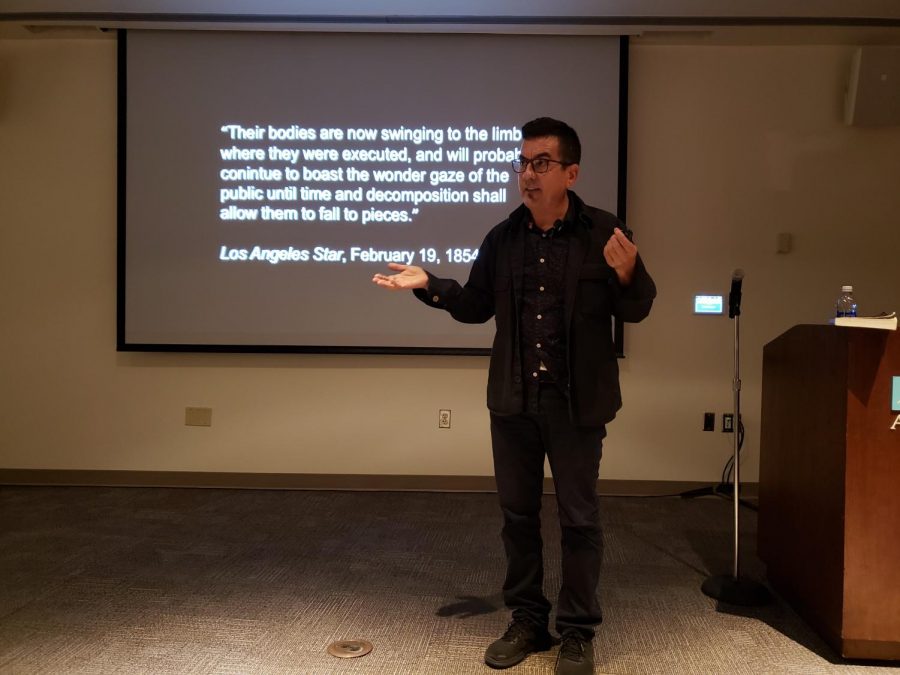Winning artist comes to AACC
Internationally renowned photographer Ken Gonzales-Day speaks to a packed lecture hall in Cade about the racial issues his photos capture.
November 1, 2018
An internationally renowned photographer told AACC students in October he uses his art to show that America’s race problems are aging—but still alive.
In a speech about his photos and artistic process in the Cade Building, Ken Gonzales-Day told a packed lecture hall that his photographs capture uncomfortable moments in American history, often centered around race.
Gonzalez-Day shared the ideas from his series “Erased Lynching,” “Hang Trees,” “Profiled” and “Surface Tension: Mapping Murals in Los Angeles,” and read from his 2006 book, “Lynching in the West: 1850–1935.”
Gonzales-Day said his work focuses on the concept of lynching, or killing done by a mob, usually by hanging, because he discovered it was widely practiced in California, where he is from.
For the “Hang Trees” series, Gonzalez-Day photographed modern trees near lynching sites that might have been used as 19th century gallows, to connect past lynching to present-day problems.
“I like the fact that it’s not just a cool idea, it can be something like eye-opening and life-altering,” Amanda Garrett, a 10th-year film student, said of Gonzalez-Day’s work.
“It shows how you can explore history and reality in ways that go beyond what you can pin down factually,” Sarah Ristaino, a second-year film student, said after the speech.
“This understanding that we can’t know everything about history allows us to refocus on storytelling without the worry of being scientifically accurate. There is a lot of truth in things that are fictional or things that are not fictional but cannot be proven.”
Gonzalez-Day said artists should recognize the differences among the biological, historical and social categories of their art.
Referring to sociologists Michael Omi and Howard Winant’s 1986 book “Racial Formation in the United States,” he told the crowd, “Race is not biological. Race is historical, race is cultural. It’s a lot of things, but it’s not biological.
“From our perspective today, what we have to ask is how do we reconcile that [scientific knowledge] with what we know about the Black Lives Matter movement or with any other movements we know—that just doesn’t make sense.”












